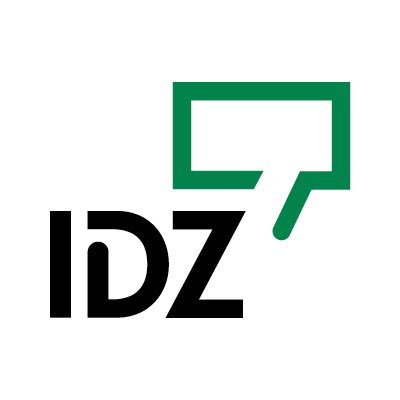Launched in Jena in 2016 with seed money from the Amadeu Antonio Foundation, the Institute for Democracy and Civil Society (IDZ) sits inside Thuringia’s denkbunt democracy program and since 2020 doubles as a node of the federally funded Research Institute for Social Cohesion. It presents itself as a research hub that maps “antidemocratic phenomena” across Germany: hate crime, anti-semitism, right-wing extremism, conspiracy-mongering and the digital currents that link them. Political scientists, sociologists, psychologists and data analysts share a single remit: turn episodes of prejudice into datasets, trace networks, publish. Recent work pivots to digital conflicts. Machine Against the Rage (2025-), an online magazine analyzing hate and disinformation flows, runs under the toneshift network and is financed by the Federal Family Ministry’s Demokratie leben! scheme. The same grant funds toneshift – Network against Online Hate and Disinformation, for which IDZ supplies data infrastructure. Earlier projects include State Measures by the Länder against Hate Speech (Campact & Amadeu Antonio, 2021) and Hate Not Found?! – a Facebook-funded study on far-right de-platforming (2020). Other flagship projects examine alleged far-right migration to new platforms after banning, interaction loops between anti-Muslim agitators and alleged jihadist milieux, and the statistical bond between online slurs and offline assaults. IDZ is a partner in the federal Network Against Online Hate and Disinformation and co-supervises related EU doctoral work. A sister organization, Civic Research and Innovation (CRI), located at the same address, pursues a similar line of work.
Go back

The Institute for Democracy and Civil Society
Amadeu Antonio Stiftung, German Federal Program 'Living Democracy!' [Demokratie leben!],...See all
Amadeu Antonio Stiftung, German Federal Program 'Living Democracy!' [Demokratie leben!], Stiftung Mercator, Facebook (now Meta), Campact e.V./Campact Democracy Foundation See less
Machine Against the Rage (MATR), State Measures by the Länder against Hate Speech, Hate Not Found?!
Toneshift - Network Against Online Hate and Disinformation, Amadeu Antonio...See all
Toneshift - Network Against Online Hate and Disinformation, Amadeu Antonio Stiftung, NEOVEX See less
Commentary:
IDZ's mission is the documentation of right-wing rhetoric online. Researchers scrape Telegram feeds, tweets and map online-offline violence correlations with scholarly restraint. The findings offer data and analysis to be cited by officials and journalists. But the institute conflates its honorable objectives with dubious political scapegoating of its own. IDZ therefore grouped those skeptical of contradictory and often arbitrary measures during the Covid period with anti-semites and racists in its published factsheet on the topic. Its coverage of the Ukraine war – and attendant pro-Russian campaigns, gaps in platform moderation to stamp it out – was accompanied by suggestion of tighter regulatory oversight, with Russian state-backed information singled out. The institute does not consider the nature of geopolitical conflict as it is reflected in political discourse, but accepts the official line that information threats from Moscow are a priority and must be countered. Nor does IDZ appear to be particularly concerned with the far-right elements populating much of the Ukrainian military, officially and unofficially. It is surely no coincidence that these are the exact positions advanced by Washington, Berlin and Brussels. IDZ's partnership with ministries guarantees funding and access but may blunt the sharpness of its critique of the far right. The result is a curated surface map that often smuggles in a blinkered official view and presents it as morally righteous. Russian and eventually Chinese influence are said to menace domestic audiences, while US foreign policy's influence in Europe, and the extremism it so often backs, as well as pharmaceutical malfeasance, escape scrutiny.
IDZ's mission is the documentation of right-wing rhetoric online. Researchers scrape Telegram feeds, tweets and map online-offline violence correlations with scholarly restraint. The findings offer data and analysis to be cited by officials and journalists. But the institute conflates its honorable objectives with dubious political scapegoating of its own. IDZ therefore grouped those skeptical of contradictory and often arbitrary measures during the Covid period with anti-semites and racists in its published factsheet on the topic. Its coverage of the Ukraine war – and attendant pro-Russian campaigns, gaps in platform moderation to stamp it out – was accompanied by suggestion of tighter regulatory oversight, with Russian state-backed information singled out. The institute does not consider the nature of geopolitical conflict as it is reflected in political discourse, but accepts the official line that information threats from Moscow are a priority and must be countered. Nor does IDZ appear to be particularly concerned with the far-right elements populating much of the Ukrainian military, officially and unofficially. It is surely no coincidence that these are the exact positions advanced by Washington, Berlin and Brussels. IDZ's partnership with ministries guarantees funding and access but may blunt the sharpness of its critique of the far right. The result is a curated surface map that often smuggles in a blinkered official view and presents it as morally righteous. Russian and eventually Chinese influence are said to menace domestic audiences, while US foreign policy's influence in Europe, and the extremism it so often backs, as well as pharmaceutical malfeasance, escape scrutiny.